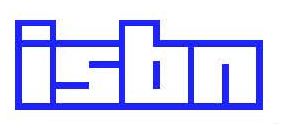December 7th, 2011
The Book Industry Study Group (BISG) today published its new policy for best practices in assigning ISBNs to digital products, aka ebooks. With endorsement from BookNet Canada, the National Information Standards Organization (NISO), and IBPA, the Independent Book Publishers Association, it’s therefore applicable across North America (“but could be applied elsewhere as well”).
 When life gives you lemons, make lemonade. When the legacy identification scheme for print books is ISBN, do your best to adapt a now antiquated and inadequate numbering system. Hats off to the “60 unique individuals and 40 unique companies” who endured the “truly collaborative learning process,” put their differences aside, and came up with what I agree is an optimal interim solution.
When life gives you lemons, make lemonade. When the legacy identification scheme for print books is ISBN, do your best to adapt a now antiquated and inadequate numbering system. Hats off to the “60 unique individuals and 40 unique companies” who endured the “truly collaborative learning process,” put their differences aside, and came up with what I agree is an optimal interim solution.
The policy adheres closely to the most recent guidelines from the International ISBN Agency, and like that document includes an assortment of qualifiers, “substantially the same,” “significantly different,” “should have,” “reduce…confusion,” “as a last resort,” and so on.
Here’s the new ISBN policy in three simple commandments:
1. Assign a unique ISBN to each file format for each ebook.
2. The digital ISBN must be different than any print ISBN.
3. If you submit the same EPUB, PDF or Mobi digital file (and a few other defined formats) to a different distributor, use the same ISBN.
It’s easy to imagine how the ISBN system, after nearly 40 years of yeoman service, fell apart. Digital books can now be files, apps or web pages. Each version can vary, by software, browser, OS and/or device. Content and presentation often differ. Apple no longer natively supports Flash content; does content cease to exist if your device can’t play it? And so on. The International ISBN Agency published a good summary of the problems from its perspective, including the frank assessment that “current recommendations in the published standard are unhelpful, not least because they refer to obsolete file formats (and the technical file format is not necessarily the sole or even the main product differentiator).”
Yes, this is an interim solution until the development of the next grand metadata system, due to be released at my funeral. Is it perfect? No. Is it a big improvement and an important stop-gap measure? Absolutely.
Phil Madans, director of publishing standards for Hachette Book Group and committee chair for the policy group notes “as Digital Books are still evolving, we intend to continue to refine and supplement the recommendations over time, building up a practical, fluid guide to how Digital Books should be identified.” Amen.
UPDATE: BISG offered a webcast January 11 designed to help clarify meaning and expectations regarding the BISG Policy Statement. There’s more info about the webcast at Publishers Weekly and a link to the $49 instructional download.